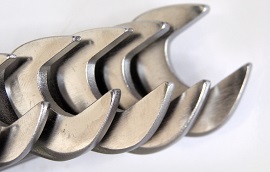Modern air conditioners operate through a precise balance of components that are needed to make your home feel cool and comfortable. Each element of your system need to be kept in excellent operating condition, but a few of these components need extra special attention. One of these is the compressor, which is at the heart of your system and determines whether you have cooled air or not.
The Compressor Basics:
In a split system, which is the standard form of central air conditioning in many homes, the compressor is inside the outdoor unit. The job of the compressor is to circulate refrigerant. This refrigerant is needed to complete the heat exchange process through the coils in both the indoor and outdoor unit.
While electricity is required to power the fans inside your indoor unit, it is primarily needed to power the compressor. There is a motor inside the compressor which has a piston and cylinder. These components are needed to compress the refrigerant when it is in gaseous form. The compressor also increases the temperature of the refrigerant to transform it into a high pressured gas state. The higher pressure forces the refrigerant to be pushed through a line leading to the outdoor coil. Inside the coil, the refrigerant condenses into a liquid state and releases its heat. The refrigerant then moves into the indoor unit where it converts into a gas and absorbs heat from the air inside your home. This starts the cycle once again.
If your compressor develops a fault, it is likely to produce strange noises, and you will lose cooling capacity. If your compressor has not received proper care and maintenance, there are some common problems that can develop.
Loss of Cooling Capacity:
The most obvious sign of a compressor problem is that you suffer a loss of cooling capacity. If your system is not cooling as well as it usually does, it could be due to an incorrect pressure inside the compressor. An abnormally low or high pressure can be due to a loss of refrigerant through a leak or a failure of a component inside the compressor. There are a number of smaller components inside the compressor that can suffer from wear and tear. These will need to be replaced to restore cooling efficiency.
Electrical Problems:
The compressor contains a motor and other electrical systems that can be vulnerable to damage. If any of the wiring has been exposed or damaged, it can cause a short between the metal components of the motor and the compressor. This can create a burning smell and prevent the unit from operating. This can also happen if the motor overheats or overloads due to an electrical fault.
Maintaining Your Compressor:
Just like every other component in your HVAC system, the compressor requires regular care and maintenance to minimize the risk of breaking down. Most manufacturers recommend air conditioning equipment is inspected and serviced once a year. It is a good idea to have your compressor serviced in spring before it will be more frequently used as the temperatures increase.
